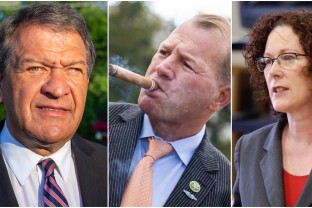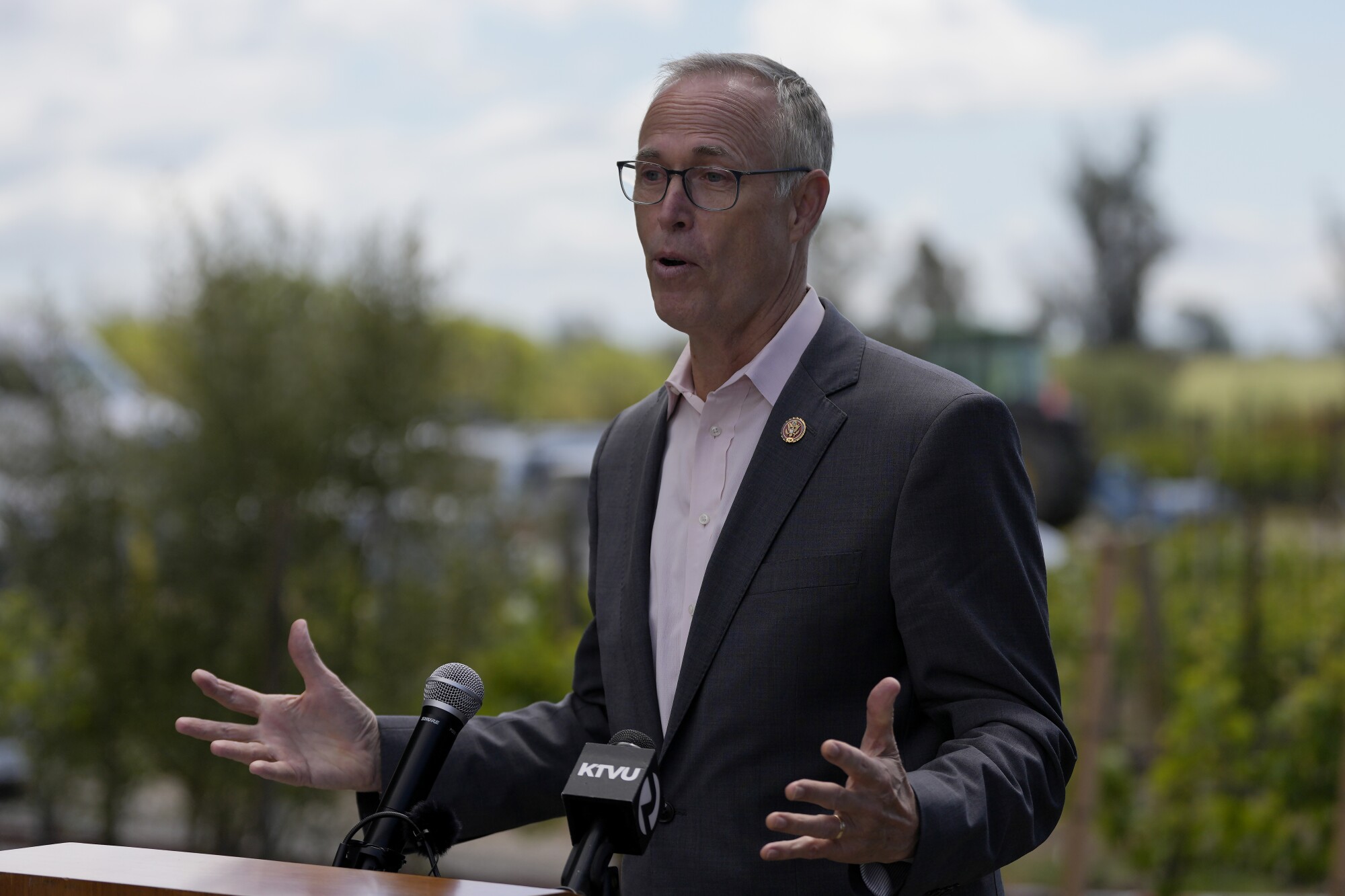Four members of Congress are flouting federal ethics laws by failing to file their yearly financial disclosures on time, according to a NOTUS review of congressional financial disclosures.
Reps. Val Hoyle of Oregon, Jared Huffman of California, George Latimer of New York, and Troy Nehls of Texas have yet to submit their yearly disclosures covering their personal financial activities during 2024, as required by the Ethics in Government Act and Stop Trading on Congressional Knowledge (STOCK) Act.
The laws seek to curb financial conflicts of interest, defend against insider trading and enhance government transparency.
Lawmakers could begin publicly disclosing their 2024 personal finances beginning Jan. 1. The deadline to file was May 15 — but many lawmakers took advantage of a 90-day extension allowance that functionally pushes the deadline to Aug. 13.
Lawmakers who don’t file by then are considered in violation of the law; if they fail to file by the close of business on Friday, the House and Senate ethics committees may assess a $200 fine.
Two lawmakers’ congressional offices acknowledged they’re pushing the envelope on the filing deadline.
Mary Hurrell, a spokesperson for Huffman, told NOTUS in an email that Huffman intended to file his annual financial disclosure by Sept. 12, when the potential for a fine kicks in.
Elizabeth Carlson, a spokesperson with Latimer’s office, told NOTUS that the New York Democrat’s disclosure was “very simple and straightforward” and that he, too, intended to file a disclosure this week.
On May 15, Hoyle requested a 60-day extension, which pushed her deadline to July 14. Hoyle, a Democrat, could have requested another 30-day extension, but she did not, according to records from the House clerk’s website.
Catherine White, a spokesperson for Hoyle, said the congresswoman’s disclosure will be submitted no later than Sept. 12.
In a brief interview Wednesday at the U.S. Capitol, Nehls told NOTUS he filed his 2024 disclosure that day and denied he did anything wrong.
“The guy that files it for me left his practice and joined another practice,” Nehls said, explaining the delay to NOTUS. “I’m not in violation of anything. Now, they say if you wouldn’t have had it in by the 15th I guess they could fine you a couple hundred bucks?”
Nehls also denied that his disclosure was late.
“You know when it’s late? It’s late when they start fining you,” he said, before telling NOTUS that he believed he was the poorest member of Congress, a title he said he was proud to have.
But Nehls’ wealth remains unclear: As of Wednesday evening, the House clerk’s website, which processes and publishes lawmakers’ financial disclosures, did not include Nehls’ 2024 annual disclosure.
Most members of Congress submit their disclosures eventually, although there have been notable exceptions, including former Republican Rep. George Santos of New York.
Nehls was referred to the House Ethics Committee by the Office of Congressional Ethics in late 2023 for, among other things, issues with his financial disclosures.
That investigation into Nehls remains ongoing. Additionally, OpenSecrets reported that Nehls has potentially violated federal law by failing to disclose financial details related to earnings from a book the congressman wrote about the 2020 election.
Numerous other members of Congress have also violated the STOCK Act and federal transparency law during 2025 with improper personal financial disclosures, many of which involve individual stock trades.
They include Republican Sen. Markwayne Mullin and Reps. Dan Meuser, Lisa McClain, Austin Scott, Neal Dunn, Scott Franklin, Brandon Gill, Hal Rogers and Tim Moore.
Democratic Reps. Debbie Wasserman Schultz, Dwight Evans, Jamie Raskin, Chellie Pingree, Shri Thanedar, George Whitesides, Ritchie Torres, Jonathan Jackson, Donald Norcross and Tom Suozzi have likewise violated the STOCK Act’s disclosure provisions this year.Dozens of other lawmakers have violated the STOCK Act in recent years.
A bipartisan coalition of lawmakers is attempting to ban members of Congress from trading individual stocks altogether and broadly overhaul rules — and penalties — related to lawmakers’ financial disclosures.
—
Correction: This story and headline have been updated to reflect that Wisconsin Rep. Tony Wied filed his financial disclosure on time in May 2025. Rep. Wied’s disclosure could not initially be found due to a clerical error.
This article has been updated to include new details about Rep. Troy Nehls’ 2024 personal financial disclosure and a comment from Rep. Val Hoyle’s spokesperson.
Sign in
Log into your free account with your email. Don’t have one?
Check your email for a one-time code.
We sent a 4-digit code to . Enter the pin to confirm your account.
New code will be available in 1:00
Let’s try this again.
We encountered an error with the passcode sent to . Please reenter your email.



